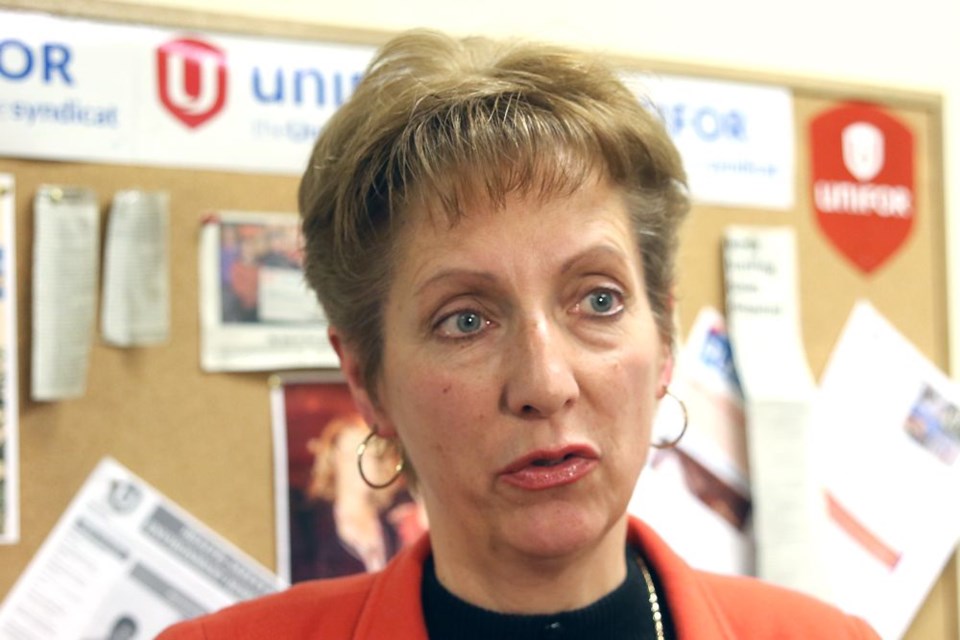The NDP’s health critic says a one per cent increase to health-care funding in Ontario will not solve gridlock or any other pressing issues facing Northwestern Ontarians.
Nickel Belt MPP France Gelinas on Wednesday said the situation is dire across the province and the time for talk is done.
It’s time for action she said, taking a break from a meeting with health-care workers at Unifor’s Victoriaville Centre offices.
Gelinas said she’s concerned about issues facing long-term care in Thunder Bay and the ongoing crisis declared in dozens of First Nations communities across the region.
“The state of our health-care system is not going to change with a one per cent increase to our hospital. I’m glad we’re not into Year 5 of a flat-line budget,” Gelinas said. “But a one per cent increase is not going to undo the damage.
“The long lines in your emergency rooms will continue to be long. The overcrowded in your hospital will continue to be overcrowded. The number of people that have hospital-acquired infections will continue to be there.”
All a one per cent increase does is keeps hospitals afloat, she added.
“It doesn’t fix the issues that the residents of Thunder Bay and the surrounding area face every day,” said Gelinas, who has been her party’s health-care watchdog for nearly nine years.
The question is what can the NDP and its third-party status accomplish at Queen’s Park?
Gelinas said she pays regular visits to Northwestern Ontario to be able to put real people’s stories in front of her legislative assembly colleagues.
It makes the issue harder to ignore, she said.
“It is very different to say that we have overcrowding in our hospital than it is to say, ‘I talked to Alvin. Alvin told that this is what it was like, that he asked to go to the bathroom and the entire nine other people (in the room) knew that he was using the bathroom. This is really an indignity,” she said.
The co-chairman of the Thunder Bay Health Coalition says the region needs a voice in Toronto to underscore just how serious the problem is in Thunder Bay and Northwestern Ontario.
“The stories we are hearing are heart-wrenching and scary,” Jules Tupker said.
Staff is overworked and starting to burn out, leading to missed work that puts further strain on the system.
There’s also the issue of treating patients with severe mental-health issues who should not be in long-term care, but a facility designed to deal with them specifically.
It’s no better at the hospitals, Tupker said.
“The backlog at the hospital is obviously grave. The violence in the hospital, the violence in the long-term care homes, it’s unbelievable the stories that I’m hearing … And it’s been going on for a number of years.”
Gelinas said she’s concerned the next provincial budget will foist even more cuts on the health-care sector, including doubling the cost of prescription drugs for seniors earning more than $19,300. She also demanded the province step up immediately to find a solution to the First Nations health crisis, given that it appears the federal government has shirked its responsibilities.
Sign in or register
- Messages
- Post a Listing
- Your Listings
- Your Profile
- Your Subscriptions
- Your Likes
- Your Business
- Support Local News
- Payment History
Registered Users
Already have an account?
New Users
Create a free account.
